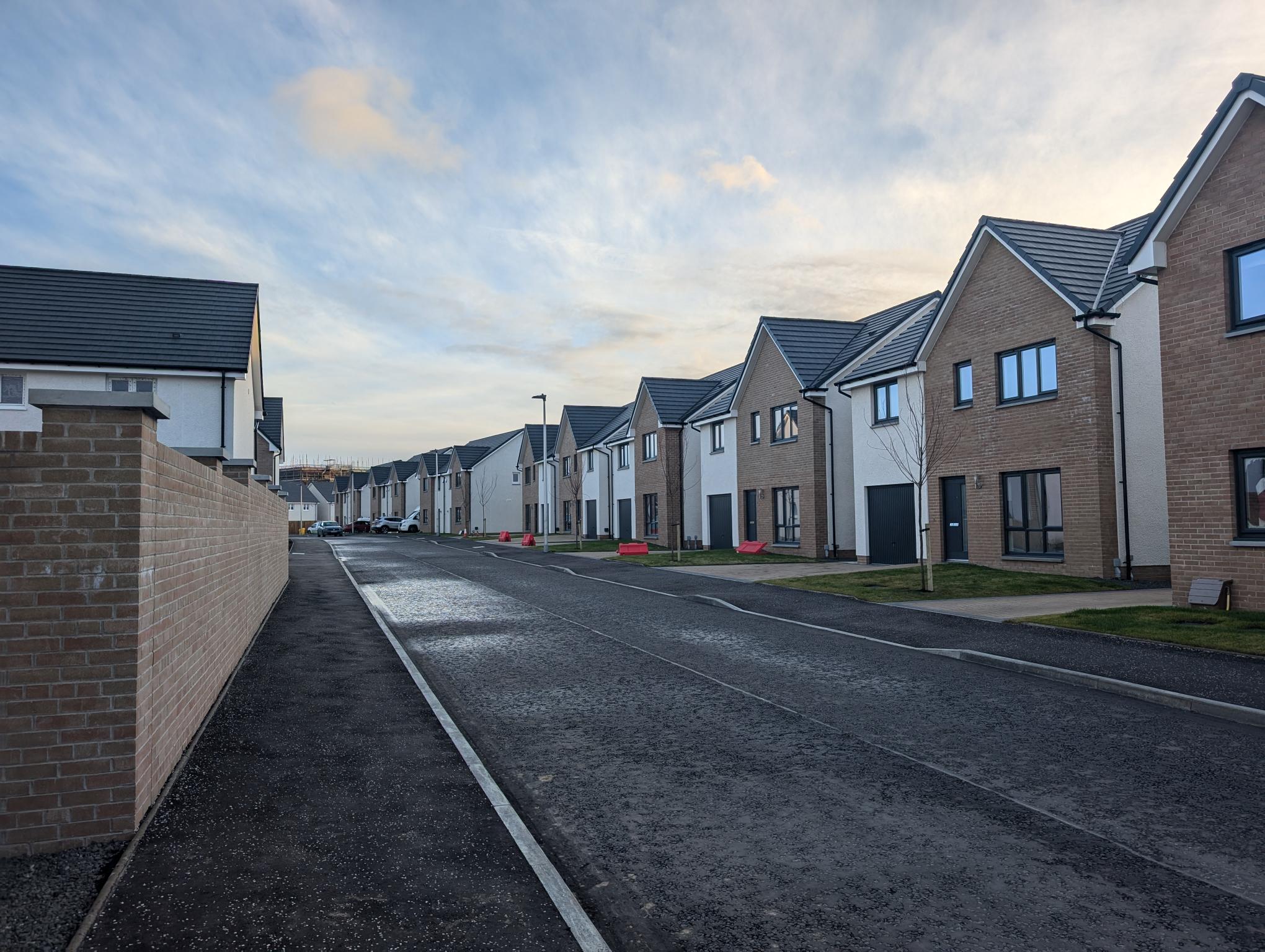Edinburgh’s suspension of housing allocations a ‘bold’ step to tackle homelessness

Emergency action to suspend council housing allocations across Edinburgh has been hailed as a bold response to the city’s mounting homelessness crisis.
The City of Edinburgh Council called a meeting of the Housing, Homelessness and Fair Work Committee (HHFWC) on Friday to approve a suspension of the lettings policy until at least 13 June 2025 to reserve almost all properties for people experiencing homelessness.
In pausing the allocation policy and working to bring void council properties back into use, the city hopes to make 120 units available for homeless households every month.
The city is also exploring other avenues for quickly expanding its housing stock, including the purchase of existing private housing.
Councillor Danny Aston said at Friday’s committee meeting that the city was exploring the purchase of a private student housing block to help with the issue.
“So we’ve heard there’s a purpose-built student accommodation block being looked at,” Mr Aston said. “I’ve actually heard a rumour that there’s maybe more than one.”
It is understood a report set to go before the council’s finance and resources committee this week will explore the purchase of ELS house on Gorgie Road, a major private student housing block.
Gareth Barwell, executive director of place, said: “There are some discussions ongoing with some sites as you’d expect, some commercially sensitive discussions. But we are aware of a number of opportunities in the city where we may be able to buy buildings that are either ready or will be ready within the next, I think, six to nine months. It’s an ongoing discussion.”
Council officers also said that the city was exploring options for expanding the city’s council housing stock in the medium and long term.
The decision to suspend the allocation of council housing means almost all spaces will now be directed towards people experiencing homelessness, with the exception of people with acute medical needs or awaiting discharge from hospital. Free council housing units will be used either for temporary accommodation for homeless people, or for permanent tenancies for homeless households.
Figures presented to the committee showed that the city failed to accommodate homeless people on 3,263 occasions in the past year – an increase of 115% over 2023-24.
Shelter Scotland, which raised concerns in 2024 over the council not showing the desire to tackle its legal breaches, has welcomed the emergency action.
However, the housing and homelessness charity warned that the move is not a long-term solution and is urging the local authority to clarify the next steps to ensure people aren’t trapped in temporary accommodation for years.
Shelter Scotland director, Alison Watson, said: “We welcome the City of Edinburgh Council’s urgent action to tackle the worsening housing emergency. The decision to suspend the normal letting policy reflects the scale of the crisis and the urgent need to protect the 3,155 children currently stuck in temporary accommodation, as well as to prevent rising levels of rough sleeping.
“This as an emergency response taken in extraordinary circumstances, with nearly three in five homelessness presentations not being provided with temporary accommodation when required. The council is facing an impossible task without enough homes or resources. This situation has not emerged overnight; it is the result of decades of underinvestment in social housing and a failure to provide councils with the tools they need to fulfil their legal duties.
“However, this is not a long-term solution. Edinburgh’s housing emergency cannot be solved by crisis measures alone. We urgently need the Scottish Government to do more to support City of Edinburgh Council to meet all its legal duties and to ensure everyone has a safe, secure and affordable home.”
Homeless Network Scotland said the decision is the kind of “bold action” needed to “create breathing space to fix a system in meltdown”.
A spokesperson said: “People who are experiencing homelessness are the worst hit by the housing emergency, and this emergency situation requires an emergency response. That is why we strongly support this prioritisation of housing allocations for people who are homeless. This is the right way to go if local authorities are to stop breaching people’s legal right to housing. And it is the way for councils to escape the trap of spending hundreds of millions of pounds on poor quality temporary accommodation in low quality hotels and B&Bs that no one wants or benefits from other than private owners.
“We urge other councils facing similar pressures to do the same. We also urge registered social landlords to explore how they can use their resources to prioritise people who are homeless in the midst of the housing emergency.
“For at least the period of the housing emergency, a significant increase in the allocation of all available housing to households who are homeless needs mandated by the Scottish Government. In the areas with the greatest pressures, this needs to go beyond current convention and apply to the development of new builds and to the acquisition and allocation of existing homes. Doing so will reduce homelessness, and free up more quality temporary accommodation in communities, preventing people, families and kids being stuck in those hotel and B&B rooms.
“Importantly, this move can also give the system more flexibility to make sure people have a safe place to sleep rather than having to use a communal ‘shared air’ night shelter or sleep rough. We need to accelerate these actions now, so that adequate accommodation can be accessed during the critical winter months, in Edinburgh and Glasgow especially.
“Prioritising housing for those experiencing homelessness is a legal and moral imperative and an urgent emergency response. But let’s be clear: a functioning homelessness system should serve as a safety net for when homelessness has not been prevented, not a primary pathway to stable housing. While a functioning housing system would place affordable housing within everyone’s reach in Scotland.”









